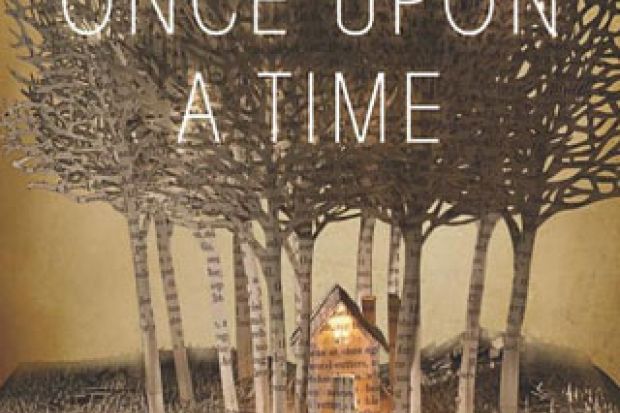Marina Warner’s newest book is as pocket-sized and potent as one might expect a short history of fairy tales to be. As the laws of fairyland dictate, size is deceptive (think Tom Thumb, seven dwarves, bottles labelled “DRINK ME”, etc), and Warner strides confidently through an extensive terrain in what is a tiny tome. Small observations have the habit of suddenly telescoping into enormous ideas, and we breathlessly hurtle down the next hole. It’s engaging and entertaining stuff, with a hinterland of complexity that raises its head like a hatted rabbit and then disappears again.
Old hat, though, is of course what this material is to Warner, whose lively and enlivening scholarship has been concerned with this subject since From the Beast to the Blonde: On Fairy Tales and Their Tellers in 1994 to Stranger Magic: Charmed States and The Arabian Nights in 2011. The material clearly comes readily to her, and although there is the hint of something opportunistic in this evidently marketable mini-book, Warner remains good and intelligent company throughout, with a sharp ear for the kind of intrigue and piquant detail that keep readers allured and alert.
She manages to be astute without being intrusive, never breaking the spell and often encouraging our further reflection. Stories about magic are frequently concerned with the magic of words, she notes with a pleasing circularity, and so you think of Scheherazade keeping death at bay with each fresh tale, but also the ragbag, hotchpotch, gallimaufry of spells, promises and passwords that litter the worlds of our childhood and lay dormant but not dead ever after: Rumpelstiltskin, abracadabra, open sesame, fee-fi-fo-fum.
If we believe that when we grow up “we put away childish things”, then Warner reminds us that those childish things came from a real world in the first place, and that there is no leaving them behind. Taking us through Hansel and Gretel, Warner writes of four-year-old Daniel Pelka, who was starved and tortured by his mother and her partner until his death in 2013. This is a notion much more complex than the banal insight that fairy tales are “dark”. Fairy tales toy with the anxiety of abandonment, of orphaned children left to their own devices in a lawless world of supernatural forces. But these stories come from somewhere. The true-crime source of Bluebeard she traces diligently to Gilles de Rais, a Breton commander in the Hundred Years War, accused of “sorcery and satanic abuse – the ritual murder of scores, perhaps hundreds of children at his castle”. Margarete von Waldeck (b. 1553), poisoned in a dynastic conspiracy, Warner identifies as the “authentic” Snow White.
There is sharpness too, though, in Warner’s retelling of this history. Rapunzel is an easily duped “ninny” (yes!) and Freud’s theorising of fairy tales is robustly rebuked as “poetic” but ultimately far-fetched. Psychologist Bruno Bettelheim’s elaborate analysis of enchantment is patiently worked through, but also punctured with an observation from Philip Pullman: “There is no psychology in a fairy tale. The characters have little interior life.” That may be so, but Warner gives the last word to Italian writer and poet Cristina Campo: “The kingdom of fairy tales…could be ecstasy but it is above all a land of pathos, of symbols of pain.”
Once Upon a Time: A Short History of Fairy Tale
By Marina Warner
Oxford University Press, 232pp, £10.99
ISBN 9780198718659
Published 23 October 2014
Register to continue
Why register?
- Registration is free and only takes a moment
- Once registered, you can read 3 articles a month
- Sign up for our newsletter
Subscribe
Or subscribe for unlimited access to:
- Unlimited access to news, views, insights & reviews
- Digital editions
- Digital access to THE’s university and college rankings analysis
Already registered or a current subscriber?





